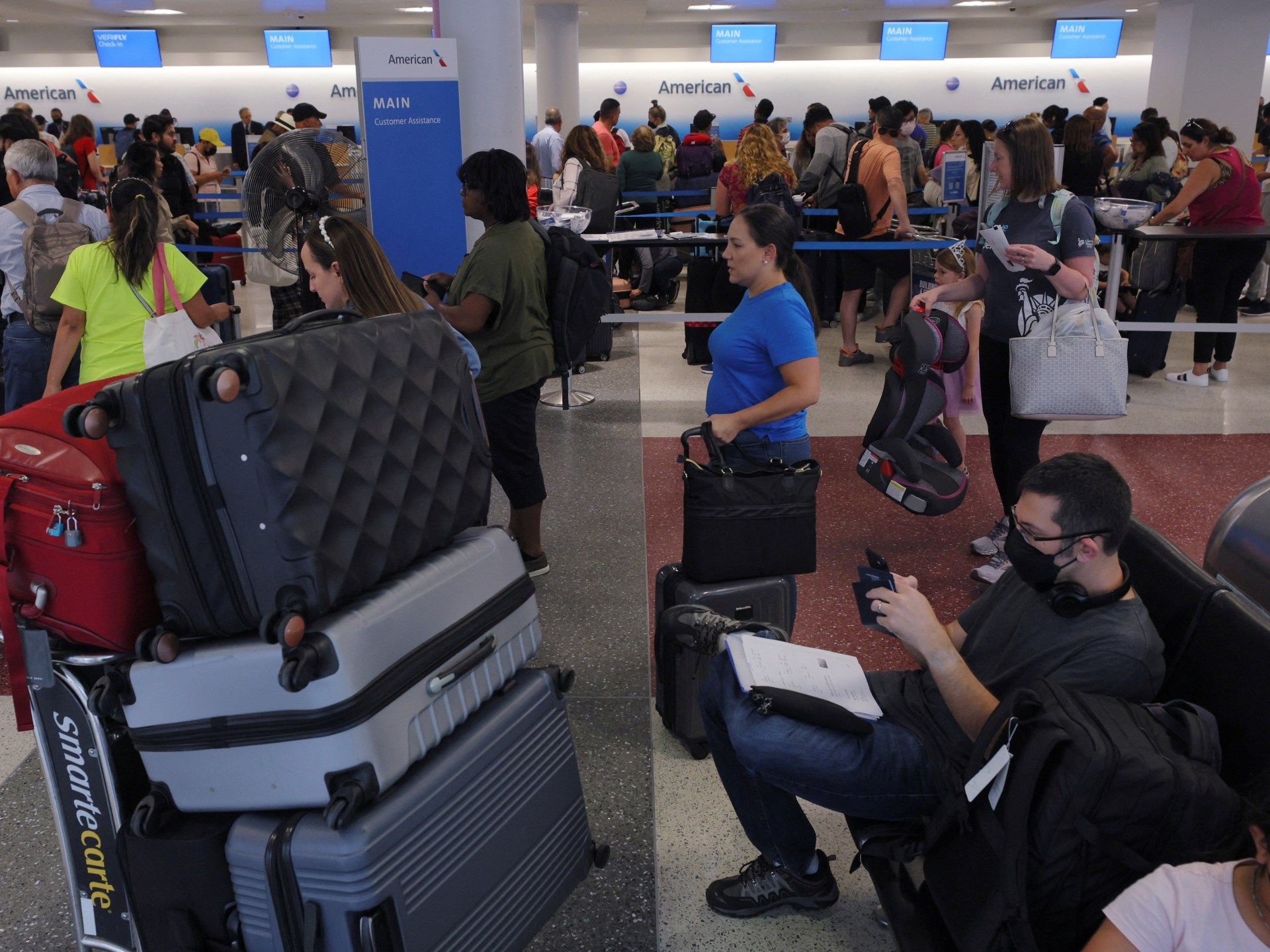A record 71 million people are expected to travel over the upcoming long weekend, a growth trajectory similar to that before the pandemic.
High fuel costs and the threat of a hurricane aren't expected to dampen Americans' desire to travel as vacationers prepare for record-breaking travel to kick off the Fourth of July festivities.
Auto trade group AAA expects a record 71 million people to travel over the U.S. Independence Day holiday, similar to the pre-pandemic trajectory.
According to AAA's forecast, about 60 million people will drive and nearly 6 million will fly to reach their destinations, while approximately 4.6 million people will take buses, trains or cruises during the holiday period.
“We’ve never seen numbers like this,” said AAA spokesman Andrew Gross. “Travel in 2024 looks to be what it would have been in 2020, had it not been for the pandemic.”
Travel during the summer months in the United States will be closely watched on multiple fronts this year, as it could offer central bankers and policymakers an important measure of consumer sentiment in an election year.
Inflation remained unchanged in May even as consumer spending rose, raising hopes that the U.S. Federal Reserve can tame inflation and avoid a recession.
Gasoline prices have been falling in recent months, and on Tuesday the national average price for a gallon of motor fuel was $3.50 ($0.92 a liter), down three cents from last year. Domestic airfare is 2 percent cheaper than last year, with the average domestic round-trip ticket costing $800, according to AAA booking data.
'Wanting to travel'
Despite recent declines, fuel prices remain well above historic levels. The average price for a gallon of gasoline was $2.74 ($0.72 per liter) during the week of July 4, 2019, and the average weekly price from 2015 to 2019 was less than $2.50 per gallon (0.66 per liter), according to data from the U.S. Energy Information Administration.
Still, tourists' travel plans are largely unaffected by higher prices this year, according to a survey of more than 1,000 people by auto retailer American Trucks.
U.S. four-week average gasoline demand hit a one-year high of 9.2 million barrels per day (bpd) last week as retailers stockpiled ahead of the holidays, EIA data showed Wednesday. Four-week average jet fuel demand was 1.7 million bpd, identical to a seven-month high hit in early June.
“What we've noticed is that it's more the exchange rate than the price itself that's affecting the consumer psyche,” said John LaForge, director of real asset strategy at Wells Fargo Investment Institute.
Because the price of gasoline hasn't risen or fallen dramatically over the past six months, consumer sentiment hasn't been largely affected by it, LaForge said.
For now, holiday travel in the United States is unlikely to be affected by Hurricane Beryl, which has caused devastation on some Caribbean islands since Monday but is expected to weaken considerably when it reaches Mexico's Yucatan Peninsula on Thursday night.
U.S. fuel inventories are also better stocked than in recent years, providing motorists with a buffer against sudden price shocks should the hurricane disrupt refining operations.
“Americans are optimistic and want to travel, there’s no denying that,” said GasBuddy analyst Patrick De Haan.












